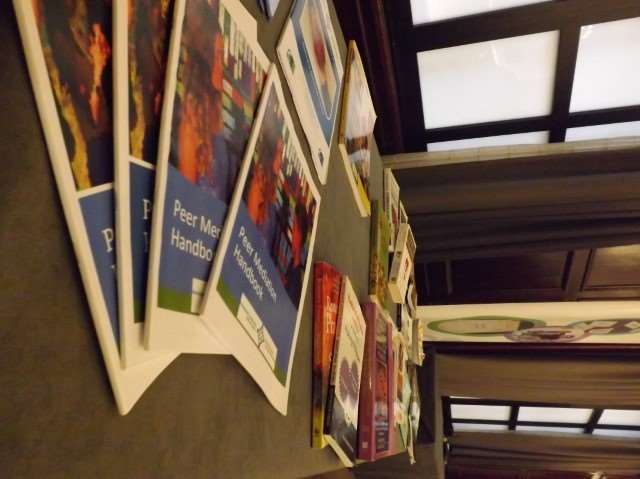In 2018, Wales Restorative Approaches Partnership (W.R.A.P.) have begun working on a 2-year project to develop and deliver an adapted whole system restorative model. The context for this adaptation and widening of accessibility is improving social and emotional skills and knowledge for pupils, school and other organisation staff and families involved in special education schools and units. The key aim is to improve the future life outcomes for pupils.
This pupil population are at the highest risk of being and staying excluded from education in school, because mainstream education cannot cope with or meet their complex needs. They are at higher risk than mainstream pupils to be living with poverty and trauma, of not gaining qualifications in school, and subsequently becoming NEET. A disproportionately high number of the same cohort, especially from pupil referral units, are also at much higher risk than mainstream pupils of entering the criminal justice system. This is commonly known as the “school to prison pipeline.” Sadly, this is usually the first time a restorative approach is offered to address needs and problem solve. We want to develop a restorative learning environment much sooner in a child and family’s life, through special educational routes.
To achieve this, we are beginning work with several individuals and organisations who can give us their direct experiences and put us in touch with families who will inform and guide everything we do.
This project is supported by the Waterloo Foundation and one of our key team members working on the project is Ted Shiress. You can find information about Ted on our website, in the about us section, this is what he had to say about his work on the project.
“In a few of our previous blogs, I have written and talked about the link between restorative approaches and disability, suggesting an approach cannot be truly restorative if it isn’t accessible. This is all well and good but a question I imagine being asked by less charitable readers is ‘Well, what are you doing to ensure this?”
No, it’s ok – I’ll take the question, and the truth is I am actually, I believe, doing my fair share. Early in 2018 WRAP were lucky enough to secure funding, with one objective among many of updating our training materials; and one part of that, making them accessible, falls partly to me, along with trainers, practitioners and others with disabilities and neurodiversity.
In my earlier days at WRAP one of the ways I was initiated to W.R.A.P. and helped to understand what they do better was to be invited along to a couple of their training sessions; these were indeed very useful and stopped me saying I worked for a group specialising in Restorative Justice! Another eye-opening factor was realising that if I, as a physically disabled person, was one of the ones being trained, a lot of the activities I wouldn’t be able to do. There was a lot of running around, a lot of standing around among people who were running and a lot of trying to communicate clearly in a very busy/noisy room – all which are out of the question for me. However, after starting to think less egocentrically I then realised there are a range of other impairments these activities would be problematic for, and even a few specific impairments they would be suited for.
After thinking about this I went away and read the material I could find around restorative approaches and disability – which there was surprisingly very little of and put together several pages of notes regarding conditions I am less familiar with and how they may affect the restorative approach. Now having written these notes I have shared them on WRAP’s intranet so if any of my colleagues are writing new training materials they have an idea of what to consider.
As for reviewing and updating W.R.A.P.’s current training materials that is very much the task, for me that most of my current time at W.R.A.P. is taken up with. With such a broad range of conditions to consider it is almost impossible to make everything suitable to everyone – however I am working towards the next best thing!”
The whole W.R.A.P. team of trainers with extensive experience of learning adaptation and facilitation, practitioners with extensive experience of facilitating a restorative process that meets need and staff and volunteers living with neurodiversity and disability are participating in this work. If you would like to know more, please get in touch by emailing contactus@restorativewales.org.uk




